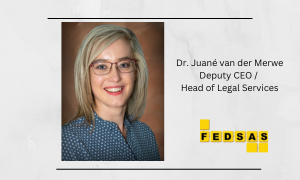14/08/2024 - Fedsas

Already struggling to survive financially, some Eastern Cape schools receive just more than R5 per learner per day from the provincial education department. Schools are supposed to use this money to pay for expenses such as textbooks, stationary, water and electricity and many other expense items. This is the result of an unlawful decision by this Department to retain a percentage of compulsory school funding to contribute to a provincial budget ostensibly for central procurements.
“The Minister of Education determines the National Norms and Standards for School Funding annually. Provincial education departments are then responsible for the transfer of these funds to schools in two payments, on or before 15 May and on or before 15 November,” says Dr Juané van der Merwe, Deputy CEO of FEDSAS (the Federation of Governing Bodies of South African Schools). Van der Merwe says schools not only use these funds for textbooks, stationary and municipal services but a whole host of other expenses, including fuel for vehicles and maintenance.
Van der Merwe says schools in the Eastern Cape only receive about two-thirds of the funds owed to them. She says this decision impacts quintile 1-3 schools the most. “These schools cannot charge school fees and rely entirely on state resources. School funding for these schools already amounts to a paltry R1672 per learner per year, in other words about R8 per learner per day. Now they receive even less.”
In May last year and again in June this year, FEDSAS requested in writing that the Eastern Cape Education Department reverse this decision but received no response. Van der Merwe says in addition to the fact that withholding a percentage of school funding is unlawful, FEDSAS members in the Eastern Cape have confirmed that they have not received any benefits through the central procurement process.
This unlawful action violates children’s right to education. In November last year, FEDSAS made a complaint to the Human Rights Commission. “However, the HRC is also letting down these children. Apart from acknowledging receipt of the complaint, FEDSAS has not received any reaction from the HRC and there is no indication that the complaint is being investigated,” says Van der Merwe. FEDSAS will continue to make use of all available options to see to it that children’s right to quality education is protected. “It is a pity that an institution like the HRC, with the aim of protecting human rights, does not seem to investigate all complaints with the same sense of urgency.”